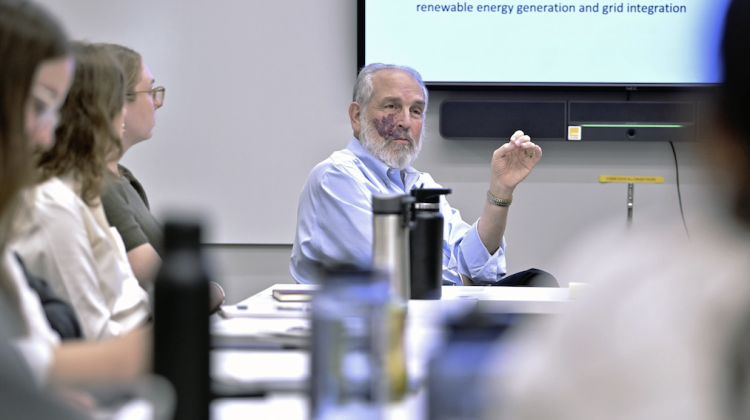Aiding Communities and Developers Resolve Renewable Energy Siting Conflicts

Credit: Josh Reynolds for Associated Press Photo
When climate activists and energy transition advocates try to explain opposition to local renewable energy sites they tend to use the term “NIMBY.” NIMBY, a common acronym for “not in my backyard,” refers to a colloquialism characterizing opposition to changes seen as undesirable in one’s own local area. “Using the term NIMBY immediately limits the scope of the conversation to selfish opposition to change. Framing opposition along these lines ‘delegitimatizes’ affected community members and stokes acrimony,' said Larry Susskind and Jungwoo Chun in an Associated Press and Cipher News article on their MIT Renewable Energy Clinic. “Our ongoing research, in tandem with the Clinic, demonstrates that the local stakeholders have legitimate reasons to oppose a particular renewable energy facility in a specific location. The current siting process does not provide local stakeholders a chance to clearly articulate their interests and participate in the process of making key decisions.”
The MIT Renewable Energy Clinic, a class which blends practical experience for students to work with renewable energy developers, local officials and community members to increase their understanding of these complex disputes while providing them pro bono assistance in the process so that they could work out their differences.
Susskind is the Ford Professor of Urban and Environmental Planning at DUSP. His research focuses on the theory and practice of negotiation and dispute resolution, the practice of public engagement in local decision-making, cybersecurity for critical urban infrastructure, entrepreneurial negotiation, global environmental treaty-making, the resolution of science-intensive policy disputes, renewable energy policy, water equity in older American cities, climate change adaptation, socially-responsible real estate development and the land claims of Indigenous Peoples.
Chun is the Lecturer of Climate, Sustainability, and Negotiation at DUSP. His research and teaching engages multiple dimensions of climate change and sustainable cities with a particular focus on cybersecurity for critical urban infrastructure, just energy transitions, and social sustainability.
Read Amy Harder’s coverage of the Clinic, “In a first, MIT trains students to resolve clean energy conflicts”
Learn more about and get involved with the Clinic


